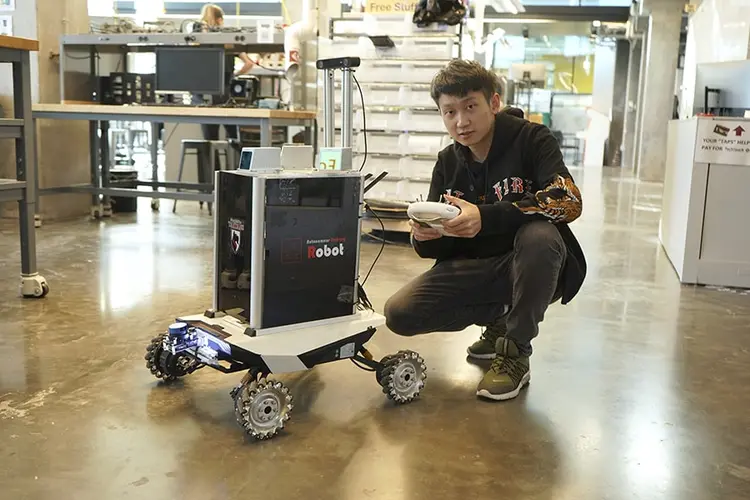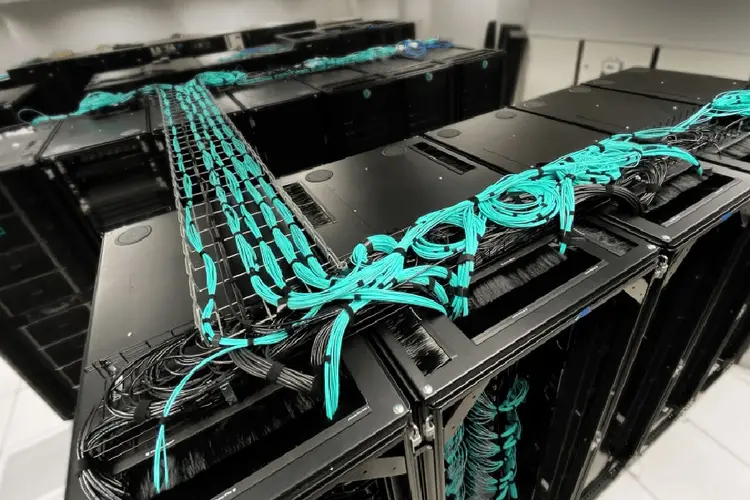
NSF Awards CMU Researchers $3M To Accelerate Next Generation Networking and Computing Systems
Media Inquiries
Carnegie Mellon University researchers in the School of Computer Science(opens in new window) and College of Engineering(opens in new window) will use nearly $3 million in funding from the National Science Foundation (NSF) to help develop intelligent, resilient and reliable next-generation (NextG) networks.
The NSF awarded $37 million to 37 different projects at universities across the country. The investment, called RINGS — short for Resilient and Intelligent Next-Generation Systems(opens in new window) — is a public-private partnership that focuses on accelerating research to increase U.S. competitiveness in NextG networking and computing technologies, and ensure the security and resilience of NextG technologies and infrastructure.
Heather Miller, Claire Le Goues and Ben Titzer, all faculty in the Institute for Software Research(opens in new window), will receive $930,000 for RINGS: Language-Agnostic Resilience Engineering at the Edge With WebAssembly(opens in new window). They aim to make applications running at the edge more resilient. The team will develop an approach to full-stack resilience engineering that will enable secure, effective and performant edge computation in NextG systems. The research will focus and build on WebAssembly, which is emerging as the common underlying language-agnostic execution platform in new edge computing environments.
"Essentially all software that we use as a society, such as online banking, searching for nearby restaurants and even streaming services, is now networked," Miller said. "Through this project, we will have new tools that, if broadly used, can result in fewer outages of critical networked services that society depends on."
Giulia Fanti and Vyas Sekar, both faculty in the Department of Electrical and Computer Engineering(opens in new window) (ECE) and part of CMU's CyLab(opens in new window), will receive $1 million for RINGS: Enabling Data-Driven Innovation for Next Generation Networks via Synthetic Data(opens in new window). The project aims to address the shortage of data needed to drive research and development of NextG systems through the use of synthetic data. The team will explore how to extend recent advances in an area of machine learning called generative modeling to create synthetic models of networking datasets.
"Synthetic datasets are randomized datasets that exhibit the same statistical patterns as real data, without the need to explicitly share original source data. Unfortunately, synthetic data generation techniques have classically suffered from poor data quality." Fanti said. "This project will tackle interdisciplinary challenges spanning networking, machine learning and privacy to develop synthetic data-enabled workflows for supporting data-driven operations in the next generation of networked systems."
Anthony Rowe, a professor in ECE and member of CyLab, will team up with Jeffrey Bilmes at the University of Washington on RINGS: Bumblebee: A Neural Network Transformer Architecture for Summarization and Prediction in Interactive XR Applications(opens in new window). The team will receive $1 million to develop a fast, resilient and adaptive general neural network transformer-based architecture for interactive extended reality applications using machine learning. Extended reality (XR) couples virtual content with the physical world through technologies such as virtual and augmented reality.
"These applications are compute-intensive, latency-sensitive and bandwidth-hungry, making them ideal drivers for next-generation communication architectures," Rowe said. "However, the current technology struggles to meet the high demand of XR workloads."
The project will result in a system that will improve XR applications like augmented-reality-guided surgery, search and rescue, digital telepresence and automotive heads-up displays.
The RINGS program is NSF's single-largest effort to date to engage public and private partners to jointly support a research program. Private sector partners include Apple, Ericsson, Google, IBM, Intel, Microsoft, Nokia, Qualcomm and VMware. Government partners include the U.S. Department of Defense's Office of the Under Secretary of Defense for Research and Engineering and the National Institute of Standards and Technology.
"The RINGS program is a visionary and ambitious effort that will benefit many critical aspects of societal infrastructure, and will have long-term, transformational impacts on the next generation of network systems," said Gurdip Singh, director of the NSF's Division of Computer and Network Systems. "I am excited to see how awardees under this program lead the path toward new communication capabilities that improve our lives, from education to infrastructure and national security."
More information about RINGS is available on the NSF website(opens in new window).


